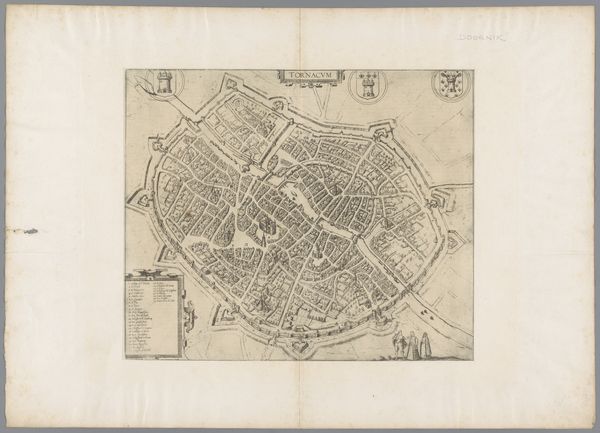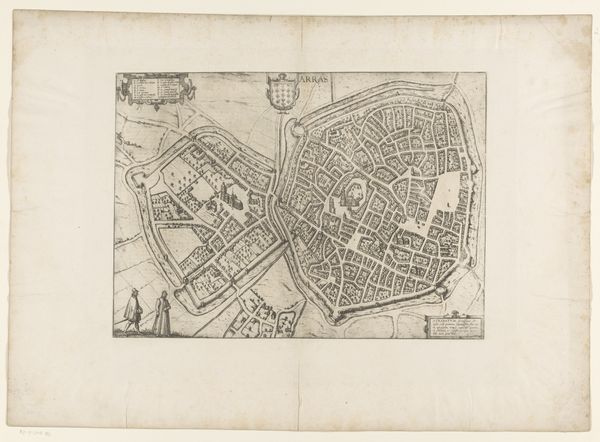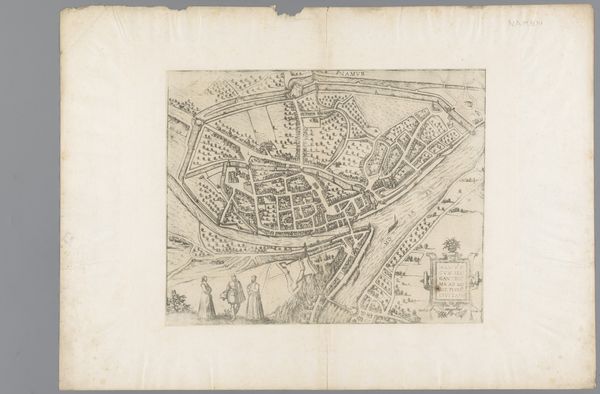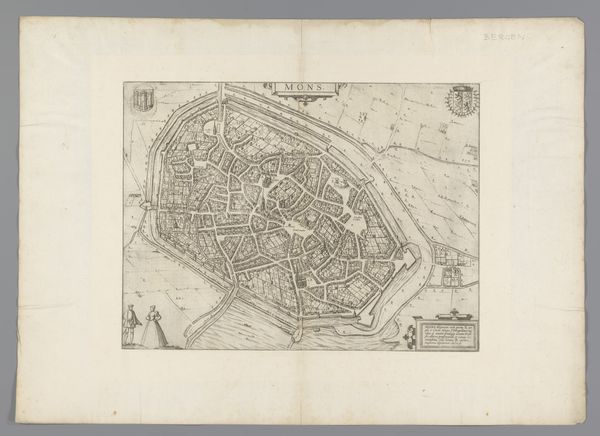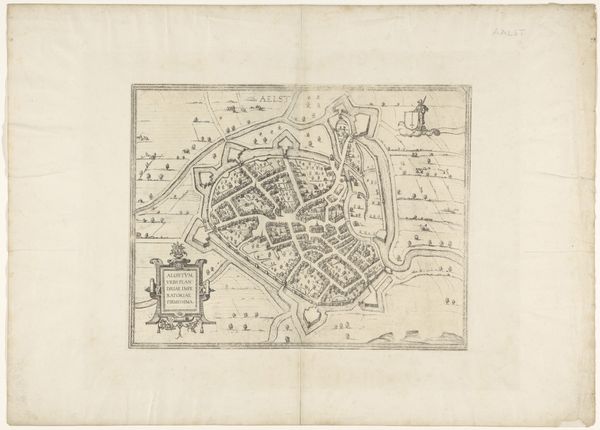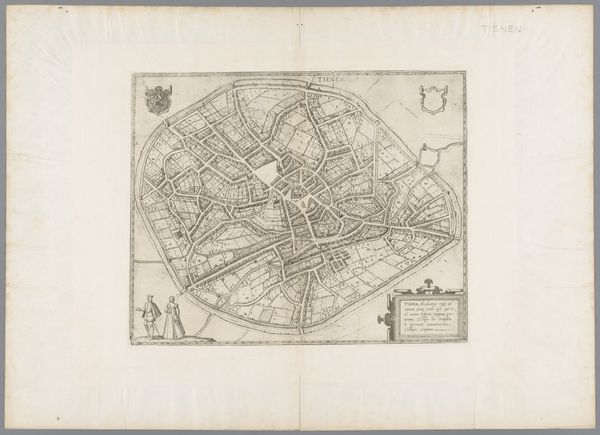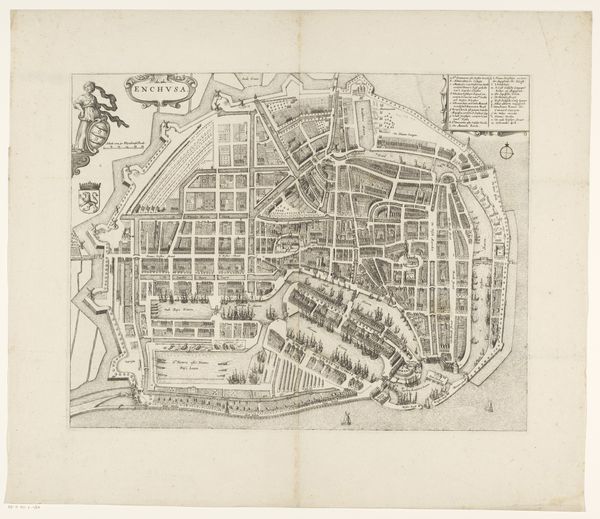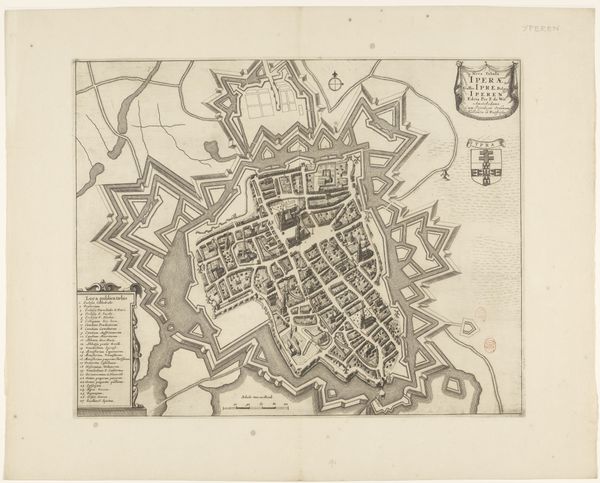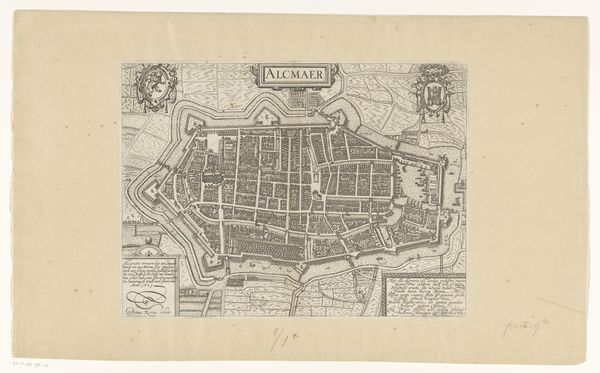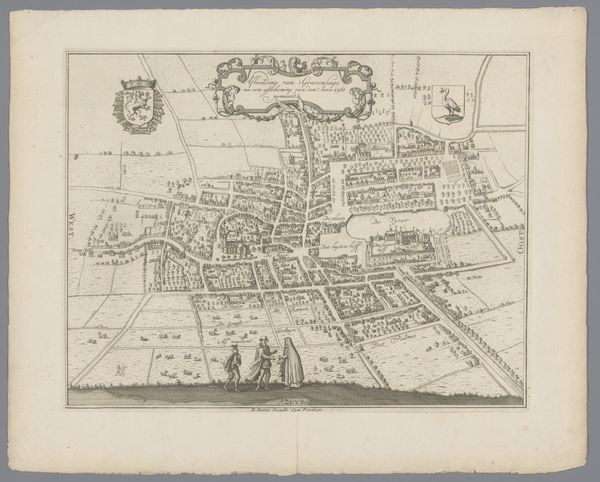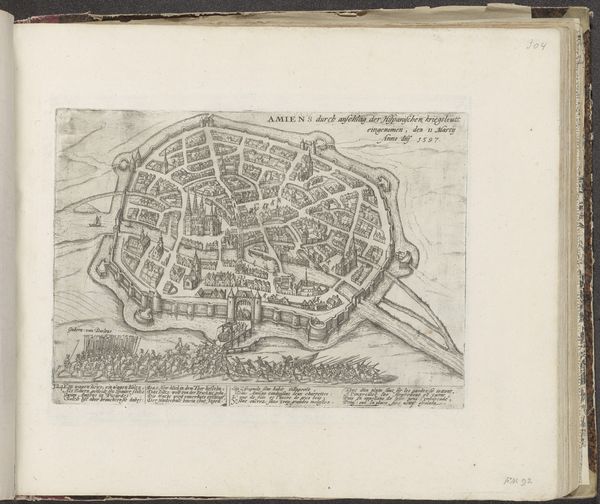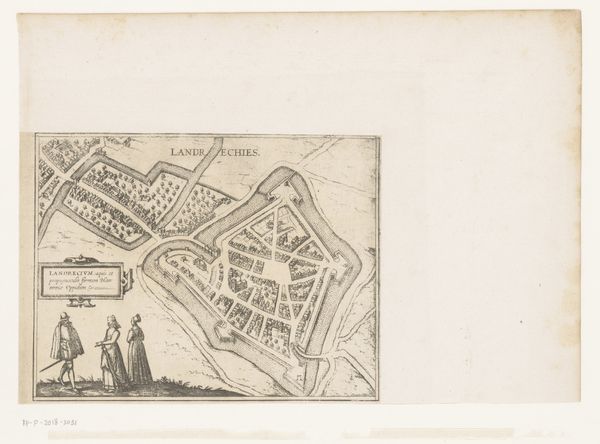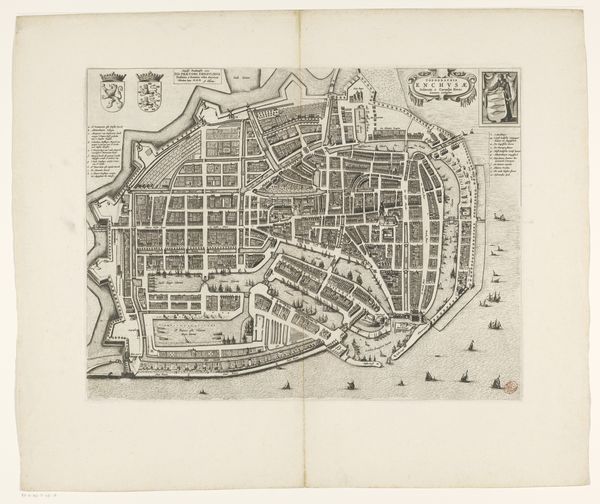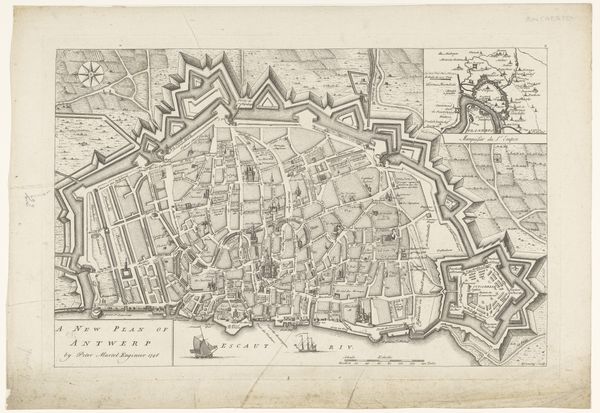
drawing, print, paper, ink, engraving
#
drawing
#
aged paper
#
light pencil work
#
baroque
#
ink paper printed
# print
#
sketch book
#
paper
#
personal sketchbook
#
ink
#
ink drawing experimentation
#
geometric
#
pen-ink sketch
#
pen work
#
sketchbook drawing
#
cityscape
#
history-painting
#
sketchbook art
#
engraving
Dimensions: height 422 mm, width 546 mm
Copyright: Rijks Museum: Open Domain
This is a copperplate engraving of Lier, made by Frans Hogenberg in the late 16th century. The lines are clean and crisp, a testament to the engraver's skill with burin and acid. Consider the labor involved. The artist would have first made a drawing, then meticulously transferred it to a copper plate. Using a burin, they would have incised the lines, or bitten them into the metal with acid. The plate would then be inked, wiped, and pressed onto paper, transferring the image. The result is more than just a map. It’s a statement about control and knowledge. In early modern Europe, maps weren’t just functional, they were tools of power. Owning the means to represent a city, like Lier, meant owning a piece of its identity, shaping how it was seen and understood. The print medium allowed for mass production of these images, and the widespread dissemination of knowledge. Ultimately, this print invites us to consider the intersection of art, craft, and the burgeoning power of the printed image in shaping our world.
Comments
No comments
Be the first to comment and join the conversation on the ultimate creative platform.
